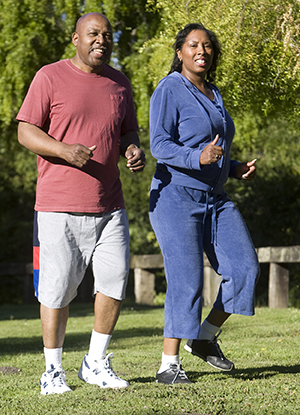Making Bariatric Surgery Work for You
After bariatric surgery, success is in your hands. The changes you make need to be lifelong commitments. Follow any instructions you're given on nutrition and activity. Be aware that how you see yourself and how others see you may change. Turn to those close to you for support. They can help you adjust to your new life.
What to expect as you lose weight
Most likely, you'll lose weight steadily for the first 6 to 12 months after surgery. The most rapid weight loss often happens during the first 6 months after surgery. Most people lose over half their excess weight in the first year and a half. After that, you may gain a small amount of weight back. This is normal. Set realistic and meaningful goals for weight loss. Most likely, you won’t reach your ideal weight. But you’ll reach a healthier weight.
Changing your eating habits
To stay healthy, you may be given guidelines such as:
-
Choose high-protein foods to help prevent nutritional problems.
-
Eat slowly. Take small bites. Chew each bite well before swallowing it.
-
Stop eating when you feel satisfied. Try not to reach that full feeling. Doing so can stretch the bariatric surgical procedure and allow you to eat more.
-
If you want to snack between scheduled meals, talk with your dietitian about healthy snack choices.
-
Drink sugar-free liquids, such as water. Drink them between (not with) meals. Wait at least 30 to 60 minutes after meals before drinking liquids.
-
Take vitamins as directed.
-
Stay hydrated. Drink 64 ounces of fluid or more each day.
-
Be sure to have 60 to 100 grams of protein per day.
-
Immediately after surgery, you should start with a liquid diet and can advance gradually to solid foods.
-
Avoid foods with high amounts of sugar and starch.
-
Don't eat fibrous foods, such as celery, string beans, or broccoli.
-
Don't eat processed meats like bacon, sausage, bologna, and salami.
-
Don't eat tough meats such as steak.
-
Don't drink alcohol and fizzy (carbonated) drinks.
-
Don't smoke. If you feel the urge to start, get help.
Having an active lifestyle

These tips can help you succeed:
-
Choose a form of regular exercise you enjoy. It can be as simple as daily walking. Walking is a popular choice for people who've had bariatric surgery. But don't swim until your incisions heal.
-
Exercise at your own pace. Start slowly and increase the time and intensity as you heal. Don't lift weights or do sit-ups, pull-ups, or any exercise that strains your belly (abdominal) muscles until your healthcare provider says it's OK.
-
Ask a friend to join you.
-
Keep a record of your exercise activity in a calendar or notebook. Some people find this a good way to track their progress and stay motivated.
-
If you're new to regular exercise, think about finding a personal trainer who understands your recovery goals. This person can help you create reachable and enjoyable exercise plans.
-
Change can be hard. Take joy in every success.
Finding support
See your bariatric surgery team on a regular basis, especially during the first year after surgery. Write down your questions and bring them with you. Don't hesitate to ask about anything related to your surgery and your recovery. The team wants you to succeed as much as you do. And they've likely heard every question you have many times before.
You might talk to:
-
Friends and family members. Family and friends can play a crucial role in providing support and encouragement to someone who has undergone bariatric surgery. The journey to weight loss and improved health can be challenging, and having a strong support system can make a big difference in a person's success and overall well-being.
-
Other people who've had bariatric surgery. Often they know just what you’re going through. You may find other people through a support group at your bariatric surgery program. Or there may be a group in your local community. There are also online communities such as BariatricPal at www.bariatricpal.com.
-
A mental health provider. If you spoke to a counselor before surgery, contact them again. Special counseling or classes may be helpful. If you start feeling depressed or anxious, don't wait to get help.
To learn more
For more information, check out these resources:
Online Medical Reviewer:
Heather M Trevino BSN RNC
Online Medical Reviewer:
Marianne Fraser MSN RN
Online Medical Reviewer:
Rajadurai Samnishanth
Date Last Reviewed:
3/1/2024
© 2000-2024 The StayWell Company, LLC. All rights reserved. This information is not intended as a substitute for professional medical care. Always follow your healthcare professional's instructions.